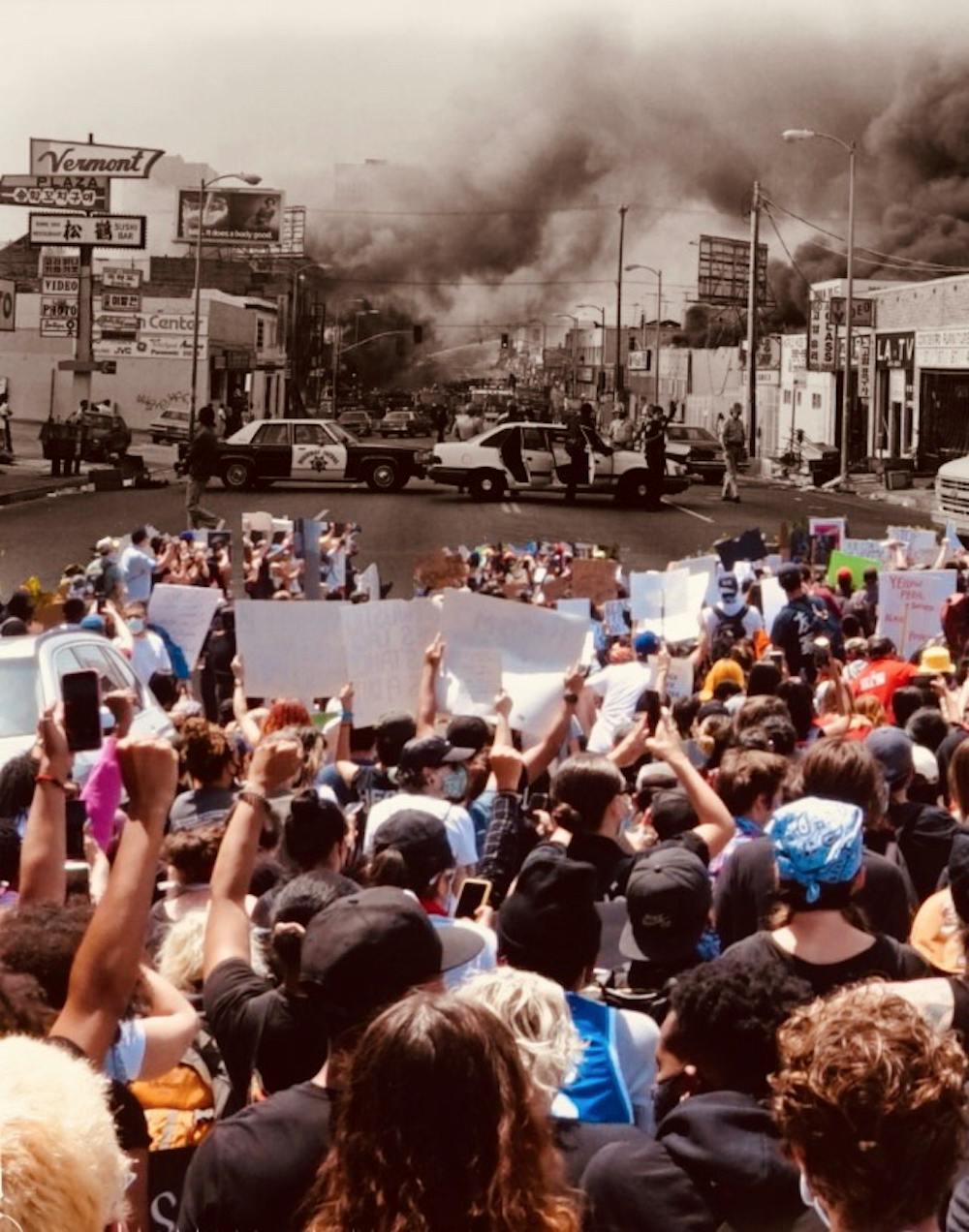As a child, I watched the 1992 Los Angeles protests, spurred by police brutality against Rodney King. Today, my children are watching a similar scene unfold.
Over the past nine days I have watched my country divide like few times before during my lifetime. I am a 41-year-old graduate student, so I have witnessed my fair share of polarization in this country. What makes today’s events so disheartening and sickening is that we have witnessed them occur time and again. Ferguson, Missouri. Baltimore, Maryland. Minneapolis, Minnesota. Today nearly every major city in America is experiencing the collective frustration of a society that is finally saying, “No more.”
No more to the systematic harassment and abuse by police to people of color. No more to silence from non-black friends and neighbors. No more to waiting for this latest “episode” to fade from the news cycle.
We have seen this too many times before. Police harass, arrest and sometimes kill a man or woman because of their race; not because they were a threat. Not because, “Well you don’t know the whole story...” No, they were treated like that simply because they are not white. The Los Angeles Police Department’s (LAPD) motto is literally “To Protect and to Serve.” How is a police department protecting and serving when it views the public as the enemy? As a threat?
As a child, I understood why the Los Angeles riots in 1992 happened. But, I never understood how in the 1990s police thought that they could get away with repeatedly beating an unarmed man.
The legitimate protests on America’s streets are as American as it gets. The violently breaking up these protests with rubber bullets and tear gas is shameful.
As the father of four sons, I am both thankful and privileged to never having to have a conversation about racial discrimination in today’s society. My two older boys are 11 and 12 years of age. Both are loud, funny kids, and they seem to be getting taller each day. We are white. I know that if I was a father of black children, I would already be teaching them what to do if a police officer stops them on the street or when they eventually drive a car. My oldest child is my daughter. At 17 years of age, she is a relatively new driver. A few months ago she was pulled over for the first time and received a small ticket for speeding. I remember my daughter telling me that she was scared because she didn’t know what to expect. I can only imagine the fear that she would have had if she had been a young black woman. Being a person of color shouldn’t be a potential death sentence.
I am from Los Angeles. I was born there and I am heading back there soon after moving around for 20 years in the military. While I am excited to move back home, I know my city’s history and legacy. I was in sixth grade when the 1992 riots began. My suburb wasn’t particularly affected; apart from a day or two off from school, nothing much occurred. Other parts of Los Angeles exploded in rage and burned for days. The National Guard was activated and they patrolled the streets alongside the LAPD. 27 years earlier the Watts riots happened in Los Angeles. Like in 1992, the National Guard was activated to restore order. Now, as my boys begin sixth grade, it’s all happening again. Despite decades of protests and progress, we continue to have systemic racism in police forces across the country. I do not believe that most officers join the police force for the wrong reason. I believe that most officers want to make a difference and protect their communities. However, there is no denying that racial injustice occur day after day; year after year.
I do not have the answer. I am not a person of color and I do not claim to know what it is like to walk in someone else’s shoes. I know that despite police body cameras, black mayors, black police chiefs, a former black president and black rank and file officers, we continue to see patterns of police brutality toward people of color.
One idea that comes to mind is zero tolerance for racially motivated behavior. Jokes, memes and other forms of discrimination have zero place in our police departments or anywhere else. Liking and sharing racially discriminative posts on social media shouldn’t be tolerated from the people sworn to protect society.
During the time of the Watts riots, police officers and other people could often get away with abusing people of color — particularly black men and women. They do this quite openly sometimes and often in the shadows. By 1992 video cameras were becoming more common. If not for a camcorder, the Rodney King beating would not have surfaced. Today, we have smart phones, social media and YouTube, and these are things that are not going to go away. If you are racist you will be caught, you will be exposed and you should suffer the legal consequences of your actions. The days of being a hidden racist should be over.
America is an experiment in freedom and democracy. Our nation was, however, born with the original sin of slavery. Rather than continually reopening old wounds, we should strive to cleanse and heal ourselves from this stain. If not, we can expect more injustice and more turmoil in our streets.
Jason Helfer is from Los Angeles, Calif. He is a graduate student majoring in Communications through the Advanced Academic Programs.





